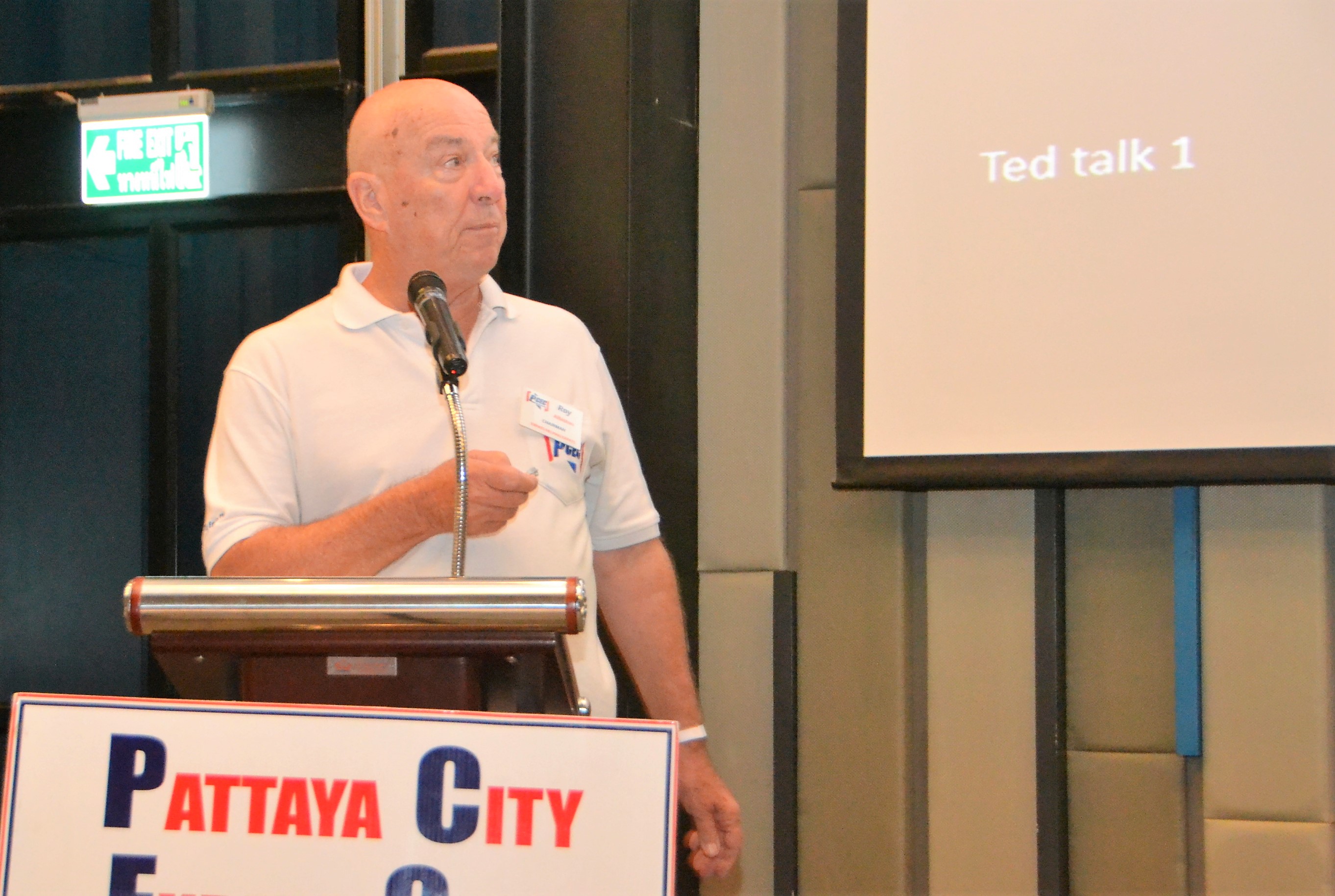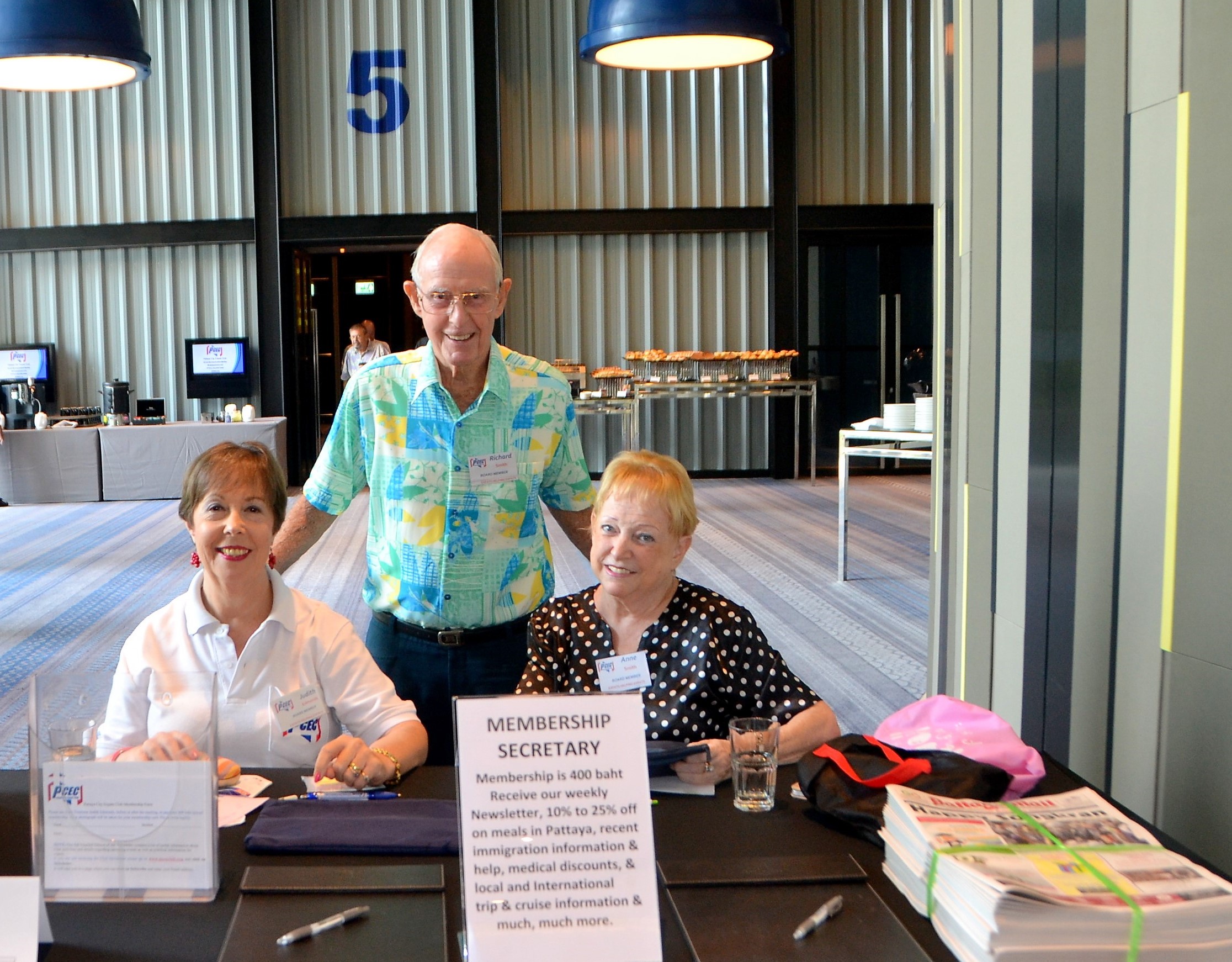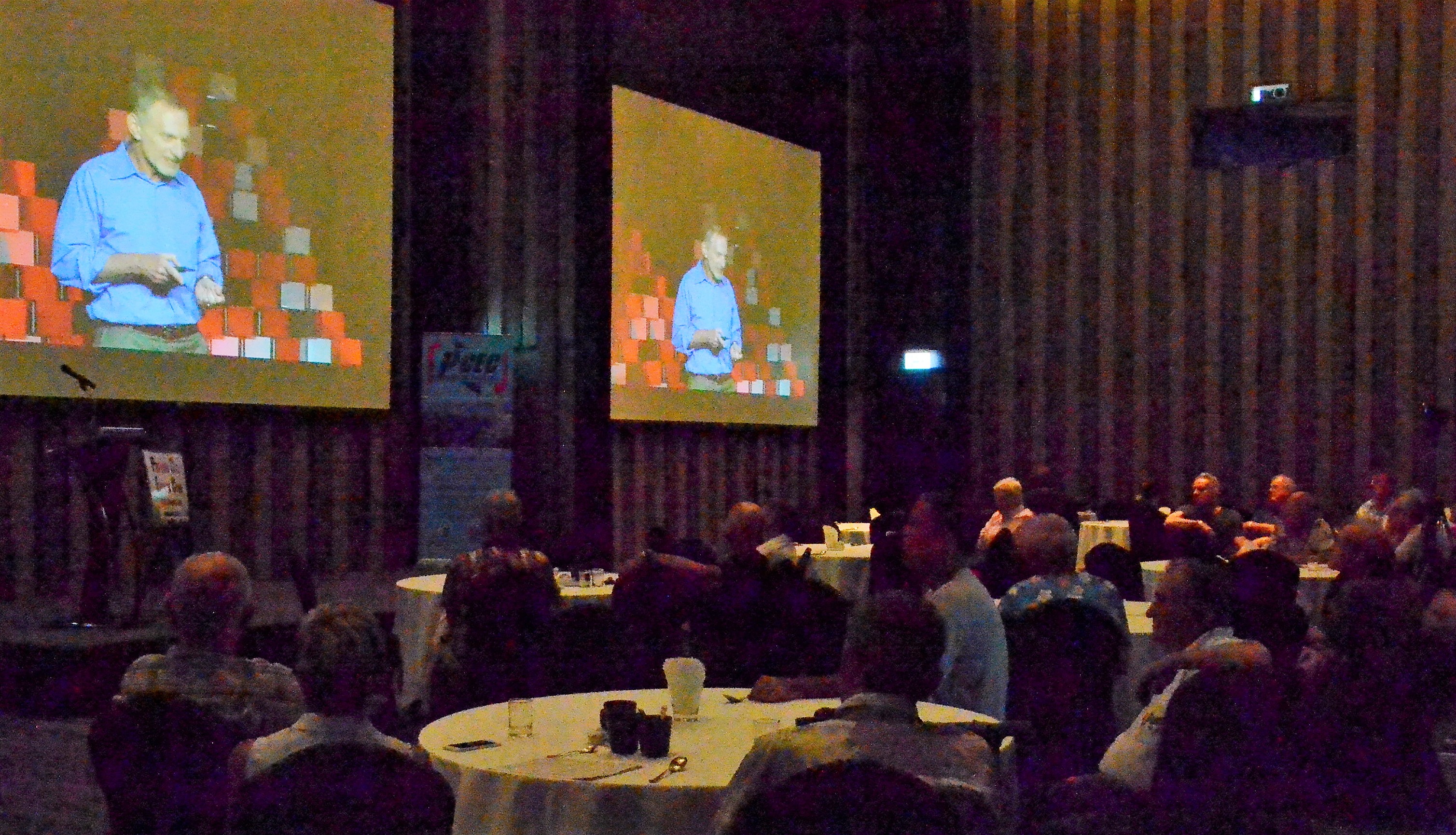Because many are not brave enough to venture out or choose to be away from Pattaya during Songkran, attendance drops off a bit at the Pattaya City Expats Club Sunday meeting during this water throwing festival. So, instead of having a speaker, who also may not be brave and adventuresome, the program consisted of four interesting TED Talks videos at the April 16 meeting.

TED is a nonprofit devoted to spreading ideas, usually in the form of short, powerful talks (18 minutes or less). TED began in 1984 as a conference where Technology, Entertainment and Design (TED) converged, and today covers almost all topics – from science to business to global issues. If you wish to view any of the videos, go to https://www.ted.com/talks and enter a topic in the search bar.
First up, everyone learned “What makes a good life?” presented by Robert Waldinger. He noted that most young people just starting out think it’s fame and money, but, according to Waldinger, you’re mistaken. As the director of a 75-year-old study on adult development, he has unprecedented access to data on true happiness and satisfaction. In this talk, he shares three important lessons learned from the study as well as some practical, old-as-the-hills wisdom on how to build a fulfilling, long life. The study found that a person’s background or where they were born had no great impact on their reaching a happy old age. The study found that those that are alone in life do not fare well, or as he says, being alone kills, it is toxic. Rather it is having relationships that increase the quality of life; not wealth or fame.
Robert Waldinger is a psychiatrist, psychoanalyst and Zen priest. He is Clinical Professor of Psychiatry at Harvard Medical School. The Study tracked the lives of two groups of men for over 75 years.
Next up was Apollo Robbins. “Do you think it’s possible to control someone’s attention, or even their behavior? To me that would be the perfect superpower,” says Apollo in this presentation. Further, “I’ve spent the last 20 years studying human behavior in an unconventional way: by picking pockets.”

Robbins, whom The New Yorker called a “theatrical pickpocket” in their profile of him, is a magician who deals in tricks of attention, rather than in tricks with rabbits or disappearing boxes. He says, “When we think of misdirection, we forget that the things you see every day are the things we are most blinded to. Pickpocketing is a distracting touch with one hand, while the other hand gets to work, and the next thing you know … where’s my wallet? Apollo Robbins is a modern master of picking pockets, possessor of a subtle understanding of human attention, a taste for classic crime.
He asks the audience: is your cell phone still on you? “Double-check,” he says. “I’ve been doing some shopping today.” So, you have your phone. Without looking at it: What’s the icon on the bottom right of the screen? (Try this at home!) People open their phones and look, laughing at forgetting this simple detail about something they use every day. “Okay,” he says. “Now shut off your phones again and close your eyes. Do you remember what I’m wearing?” The audience doesn’t; including his solid purple shirt. Finally, Robbins stumps us with another simple question: “Now, what time is it? You just had your phone out, you just looked.” It’s a matter of paying attention, and most of us don’t do it well.
“Attention is what steers your experience. I exploit this,” says Robbins. “I play with your attention as a limited resource.” At the end of the 8 plus minute video, Robbins once again addresses the auditorium. “I ask you again: what am I wearing?” A jaw dropping moment ensues, as he is now wearing a different shirt.
The third topic was “The Transformative Power of classical Music” presented by Benjamin Zander. Since 1979, Benjamin Zander has been the conductor of the Boston Philharmonic. He is known around the world as both a guest conductor and a speaker on leadership – and he’s been known to do both in a single performance. He uses music to help people open their minds and create joyful harmonies that bring out the best in themselves and their colleagues. He has two infectious passions: classical music, and helping us all realize our untapped love for it – and by extension, our untapped love for all new possibilities, new experiences, new connections. To appreciate this presentation, you really have to see the video presentation.

The final topic, if you could call it that, was a very short video titled “A TED speaker’s worst nightmare,” where Colin Robertson was starting his presentation on crowdsourcing solar energy at the 2012 TED conference. But, it seems Improv Everywhere had staged an invasion of the conference. It begins with the icon that Apple computers use to indicate a page is loading or about to crash (which is known as the “Spinning Beach Ball of Death” appears on the TED projection screen. So when Colin Robertson was presenting his vision of crowdsourcing solar energy at the 2012 TED Conference and saw the icon spinning on his slideshow presentation, he knew he was in trouble.
But the technical glitch quickly turned into a performance by flash-mob pranksters from Improv Everywhere as they staged a full scale invasion of the conference. The performance-art piece brought to life the so-called Spinning Beach Ball of Death with song, dance, and confetti and made light of the icon of Mac-user anxiety, as well as the gathering of influential tech A-listers.
But, Colin Robertson is a fictional character created by Improve Everywhere for this special prank at TED2012. He is played by Eugene Cordero, an actor and comedian based in Los Angeles, and a regular performer at the Upright Citizens Brigade Theater.
After the video presentations, MC Roy Albiston gave an update of current events and activities, which was followed by the Open Forum, where questions are asked and answered or comments made about Expat living in Pattaya.
For more information about the PCEC, visit their website at www.pcec.club.




